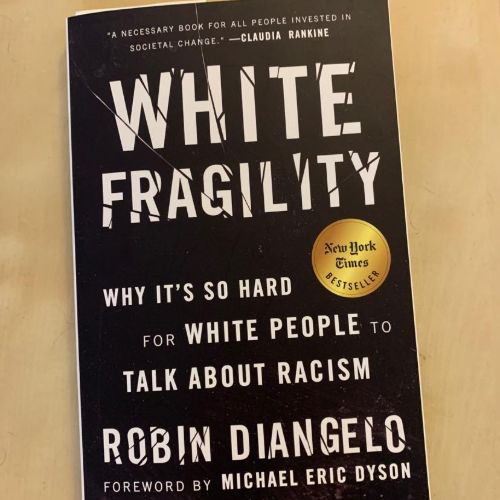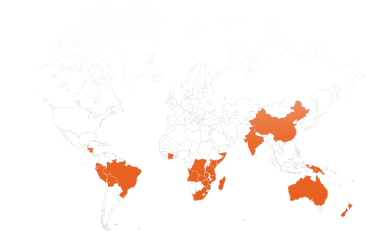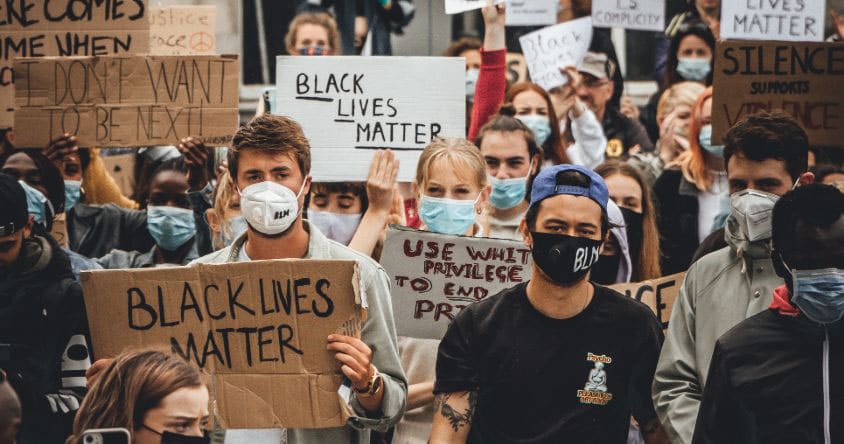The Kaya team has watched with a heavy heart as images of police brutality, racial discrimination, and ignorant privilege once again flood our TV screens, news feeds and social media. I say once again, because, shocking as all these scenes are, we have seen them all before in a system that continues to perpetuate inequality and silences the voices of those most affected.
With our founding mission focussed on promoting educated, compassionate global citizenship, we could not stay silent on the current events. At the same time, it would not be appropriate to speak on behalf of any individual or group of people or profess any particular expertise in these complex issues to provide our own thoughts and opinions. However, at Kaya, we believe in justice and equity as well as the power of acceptance to better coexist and make the world a more peaceful place.
So, with that, what we would like to do is share with our community the resources that we feel can contribute to the conversation, the understanding and the progress towards change for a better future. We hope these resources might inspire not just a greater level of understanding, but provide some idea of how we might all become better allies to those suffering within these systems.
Right now, it is the USA in the limelight, and many of these resources look at the historical systems of oppression, institutional structures, and events that are related to U.S. history. However there are few countries that cannot find evidence of privilege, inequality, and oppressed minorities within their societies, making this relevant to all, regardless of where you live.
If you have any additional resources that you would like us to include, please feel free to share these in the comments section.
We stand with US protesters this week to promote the message that Black Lives Matter!
Resources for Discussions on Privilege
Remember that the discussion on privilege is not one of finger-pointing or ‘guilt’, but rather developing your awareness of things you may take for granted that someone else may not have the same privilege to do. Any person might be a beneficiary and a victim of privilege in different areas of their life. Exploring privilege is a great place to start in understanding inequality. Most of these resources are focussed on racial inequality, but the theories can also be applied to other areas.

The race of life – This video uses a group of teenagers lining up for a race as a way to consider privilege.
This article – My White Friend Asked Me to Explain White Privilege the author, Lori Lakin Hutcherson responds to her white friend’s requests of how they should consider white privilege
Another great response to the question of how to be better allies to people of colour come from Courtney Ariel in her article – For our white friends desiring to be allies
Robin Diangelo’s 6-minute video Why “I’m not racist” is only half the story discussed why it is important to explore privilege further.
The Dismantle collective have a great list of “resources for allies” to check out.
This paper written by postgraduate students provides an excellent, structured process walking you through the steps and activities to explore and understand white identity development.
Whiteness of a Different Color: European Immigrants and the Alchemy of Race by Matthew Frye Jacobson is also an eye-opening book exploring historical white and immigrant identity.
This 4 minute animation gives a very simple explanation of systemic racism.
On the conversation of Black Lives Matter vs All lives Matter – this piece gives some great analogies to explain the relationship between the two.
This anti-racism resource page also provided great additional information

Resources addressing American Black history and structural inequality
There are many great books and films that dig into different elements of American history and how infrastructure supporting inequity developed. Here are just some of our choices.
Documentaries
- 13th from Ava DuVernay (currently on Netflix) is an award-winning documentary looking at structural policies and systematic criminal justice reform that led to the mass incarceration of black Americans since the abolition of slavery.
Literature – Fiction
- Their Eyes Were Watching God by Zora Neale Hurston
- I Know Why the Caged Bird Sings by Maya Angelou
- The Bluest Eye by Toni Morrison
Literature – Nonfiction
- Natives: Race and Class in the Ruins of Empire by Akala
- Stamped from the Beginning: The Definitive History of Racist Ideas in America by Ibram X. Kendi
- The New Jim Crow: Mass Incarceration in the Age of Colorblindness by Michelle Alexander
- The Assassination of Fred Hampton: How the FBI and the Chicago Police Murdered a Black Panther by Jeffrey Haas
- Why Are All the Black Kids Sitting Together in the Cafeteria? And Other Conversations About Race by Beverley Daniel Tatum
For Young Adults
- Stamped: Racism, Antiracism, and You: A Remix of the National Book Award-winning Stamped from the Beginning by Jason Reynolds and Ibram X. Kendi
Own Voices/Autobiographies
- This Bridge Called My Back: Writings by Radical Women of Color, edited by Cherríe Moraga and Gloria Anzaldúa
- For Colored Girls Who Have Considered Suicide When the Rainbow Is Enuf by Ntozake Shange
- Assata: An Autobiography by Assata Shakur
- The Fire Next Time by James Baldwin
Further reading
- New york times Anti-racist reading list
Resources specific to issues of Protest, Policing and Police Reform
Here are some more specific resources relating to the focus of current protests.
- The End of Policing by Alex S. Vitale
- This interesting thread reviews research-based solutions to Police Brutality
- For anyone trying to understand the conversation surrounding protesting versus rioting, Trevor Noah provides some great insight in this clip
Ideas for action
All the above resources provide ideas for actions you can take at either a personal level or on a larger scale. The following are soma additional resources we wanted to share.
Interesting Instagram feeds to follow;
Check Your Privilege – a guided journey exploring how your actions affect the mental health of People of Color.
Some of our team follow social groups promoting representation in outdoor activities:
@blackAFinSTEM – “Here to show Black STEM Unity across our disciplines and share our experiences in STEM. (founders of #BlackBirdersWeek)
@blackgirlstrekkin – “Diversity & Inclusion, Education & Conservation”
@unlikelyhikers – “Diversity + Community + Body Liberation Outdoors”
@brownfolksfishing – ”Featuring BIPOC anglers. For community and conservation.”
@outdoorafro – “Celebrate and inspire Black leadership in nature”
@colorthecrag – “Celebrate diversity in climbing”
@browngirlsclimb – “Leadership by women of color on the rock + Mentorship + Community + Education + Climbing”
@melaninbasecamp – “We are People of Color in the outdoors.”
@wecoloroutside – “Helping women of color create unapologetic, JOY-filled lives through outdoor adventure.”
@colourthetrails – “This is a group for POC & allies interested in outdoor activities, including hiking, skiing/snowboarding, kayaking, camping.”
@citykidswildernessproject – “Founded on the belief that providing enriching life experiences for DC children can enhance their lives, the lives of their families and the greater community.”

And this conversation can continue further for Kaya participants as we travel abroad again in the future and ensure we educate ourselves to avoid perpetuating colonial savioriorism in our travels and our service work.
This Ugandan advocacy campaign No White Saviors does a great job discussing the disruption of traditional power structures between the Western world and the African continent, and you can also read more about this area on our ethics page.
We’d also like to share resources on study abroad grants available for minorities including African Americans.


0 Comments
Trackbacks/Pingbacks